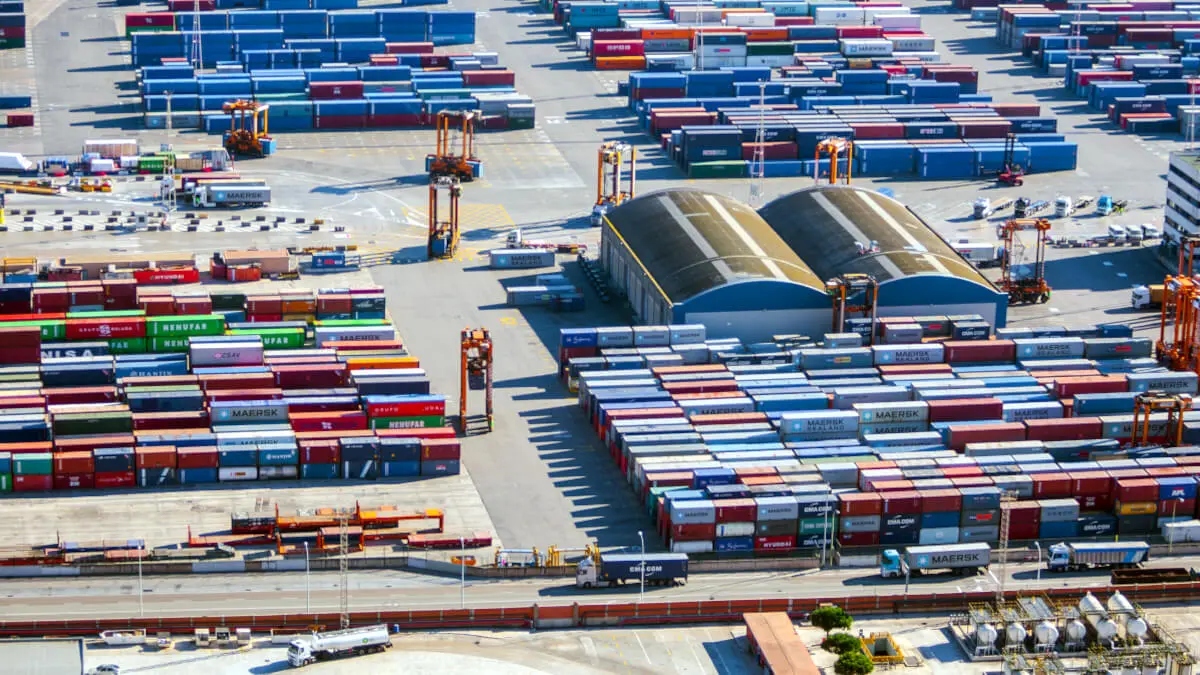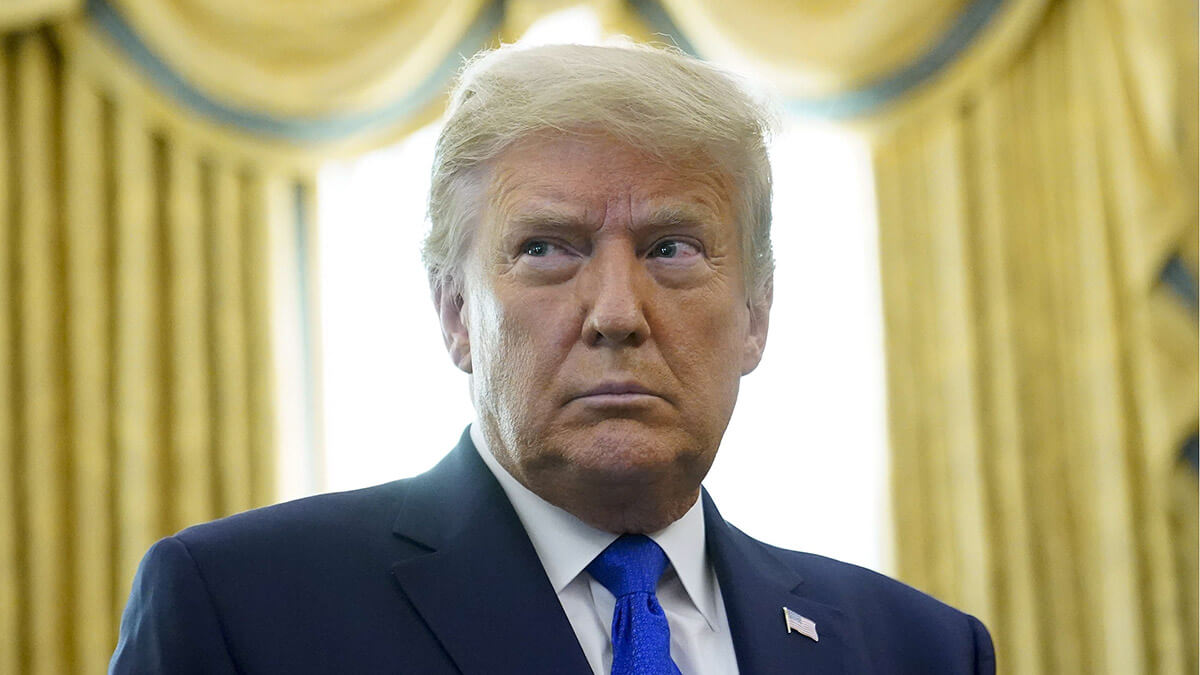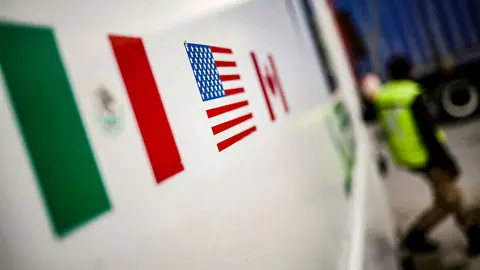The impact of the possible tariffs of Trump's new mandate on the Spanish economy

- Investments from Spain and the USA
- Agri-food sector
- Energy sector
- Industrial and defence sector
- Digital sector
- Financial sector
The protectionist measures announced by Donald Trump at the start of his second term in office, such as the imposition of tariffs or their increase, will have a negative impact on the European and Spanish economies, according to a report prepared by LLYC Corporate Affairs, formerly Llorente & Cuenca.
For the time being, the 25% tariffs that the Trump Administration was going to impose from 4 February on products from Mexico and Canada have been suspended for a month, following talks between Trump and the leaders of both North American countries.

With regard to tariffs on products imported by the United States from European Union countries, the only figure known so far is that published by The Telegraph, which estimates them at 10%, although it is expected that they will soon come to light.
The report analyses the current state of trade and investment relations between the United States and the European Union, exposing the possible risks and economic opportunities for the European continent in the face of Trump's protectionist policies, which set tariffs of between 10 and 20% for global imports.

Investments from Spain and the USA
Within the European Union, Spain's main destination for foreign investment is the United States. According to figures from the LLYC report, it is estimated that, in 2022, the accumulated net investment was 87.202 billion euros, which corresponds to 3% of the EU's investment in that country. For this reason, various sectors of the Spanish economy could be harmed, despite the fact that the country will register a trade deficit with the United States, according to the same source, of 5.63 billion euros in 2023.
It should be noted that, according to data from the European Commission, the cumulative net investment from the United States was 38.431 billion euros in 2022, which represents 6% of foreign direct investment in Spain. This investment was mainly allocated to the finance and insurance sector.
It is precisely these exchanges in strategic economic sectors such as finance, insurance and energy that can cause, according to LLYC, the weakness of Spanish companies in the face of measures that may affect trade between the two countries.

Agri-food sector
One of the important sectors in trade is agri-food, due to exports. During Trump's first term, his administration imposed tariffs of up to 25% on European agricultural products, affecting the competitiveness of key exporters such as Spain. Subsequently, in 2021, the World Trade Organization (WTO) recognised that these tariffs were illegal, although the additional tariffs of 31% remain in force.
The imposition of new tariffs could affect European products such as olive oil, wine and table olives. It should be noted that, due to the additional 31% tariffs that remain in force, products such as Spanish olives have been affected.
Despite this, in 2023, according to the report, Spanish exports in this sector to the United States increased to 3.8 billion euros, making the US the second most important market for the Spanish economy, behind the United Kingdom. Even in the same year, according to figures from LLYC, Spain achieved a surplus of 1.888 billion euros in this sector with the United States.

Energy sector
On the other hand, the arrival of Trump could bring about significant changes in the country's energy policies, which would directly affect relations with the European Union, due to the focus on deregulation that characterises the new Administration.
According to Eurostat data, the United States has positioned itself as the number one supplier of liquefied natural gas (LNG) and oil to the European Union, accounting for 47% and 17%, respectively, of the total supply of both fuels during the first quarter of last year. In relation to this, in 2023 Spain registered a deficit of 6.997 billion euros in energy goods with the United States.

For this reason, any change or protectionist measure in this area could affect the European energy sector. To avoid an escalation of trade with the United States in the energy sector, the President of the European Commission, Ursula von der Leyen, suggested increasing imports of liquefied gas from the United States, taking advantage of its more competitive offer in terms of costs.
On the other hand, with regard to renewable energies, the possible dismantling of the Inflation Reduction Act (IRA), passed during Joe Biden's term of office to boost renewable energies, could limit European investments in the US market.
Industrial and defence sector
The industrial sector is also relevant in bilateral relations between the United States and Spain, since in 2023 Spanish exports exceeded 12.323 billion euros, according to data from LLYC. In addition, investment in this sector shows an imbalance that benefits the United States since, according to the same source, it has 2.26 billion euros more in accumulated investment in Spain.
The report suggests that the sector could see a 5% increase in tariffs, following Trump's statements in this area, although Spain would have an advantage due to its geographical location. The new administration is expected to impose protectionist policies that place the industrial sector at the centre and thus protect domestic industries and their workers.

The Trump Administration also positions the defence sector as one of the most important, as well as being one of the most controversial points in the relationship with its international allies. Specifically, Spain, according to NATO data, devoted 1.28% of its national GDP to defence last year, the 32.16 billion required to reach the 2% target.
In relation to the above, Spain's geostrategic location represents an opportunity to increase investment by the United States and also to reinforce Washington's position as a strategic ally in transatlantic connections.
Digital sector
The digital sector is also important, as in 2022 Spain allocated 3.1 billion euros to projects in the United States, compared to the 1.271 billion euros that the North American country invested, according to the LLYC report.
Thus, if Trump intensifies trade barriers and regulatory differences, it would hinder cooperation in emerging technologies and increase tensions between the two countries. A scenario in which initiatives could emerge to reduce Spanish technological dependence on the United States.

Financial sector
Finally, there is the financial sector, in which Spain is very competitive, especially in areas such as retail banking, asset management and financial intermediation services. Our country has managed to present a diversified range of products to the United States and also seeks to reduce dependence on the local market.
In relation to the above, one of the points to highlight is the internationalisation of Spanish banks in the US market. Although a Trump Administration focus on deregulation, technological innovation and financial competitiveness could have a positive impact, it could also create a less predictable environment for Spanish companies that are accustomed to stricter European regulations.

The arrival of Donald Trump in the White House has direct consequences for the European Union, as the United States seeks to reduce its trade deficit and strengthen its industrial sector, but with this it is also expected that EU countries will take measures to reduce their dependence on the US and open up to new markets such as Latin America or Asia-Pacific.











